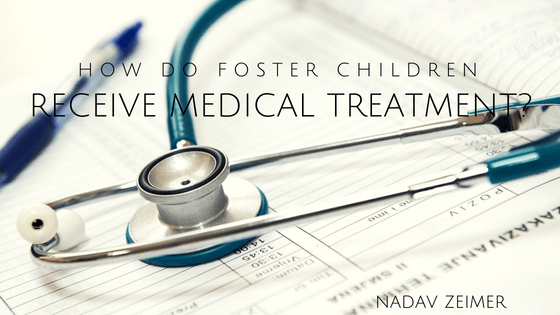Foster parenting is not an easy feat. Foster parents have to deal with a number of challenges throughout the process, but one that is not often addressed is healthcare. While most foster children are covered under Medicaid, which usually continues to provide coverage even when the child is adopted, few doctors and even fewer medical specialists accept Medicaid.
Another challenge comes from coordinating health decisions with the foster child’s biological parents and government welfare agencies. Foster parents don’t have the agency to make decisions regarding their foster children without input from other parties, which can dramatically increase the time spent treating a health issue.
When I became a foster parent, I naively thought “I’m going to treat this child as if she were my own for the time that she is with me.” Health issues as simple as how we fed her were complicated by the difference in the beliefs my wife and I shared and those of her biological mother. We believed in minimizing sugar intake, increasing home cooked vegetables and legumes, and our foster daughter loved black beans and broccoli, and she drank lots of water. When we visited with her mom, she brought candy, soda, and KFC for her daughter which we felt caused her eczema to flare up. Then, when we would go to the doctor, her mom wanted steroids for her eczema while we wanted to avoid using them, as long as we could keep the child comfortable without them. The birth parents had no reason to trust us as we pushed for our beliefs about healthy eating.
Furthermore, we tend to avoid going to the doctor, but the foster care agency required us to go to the hospital for every little scratch this rambunctious ray of sunshine accrued, which would consume hours of our time in a hospital – not where we wanted to spend our time. These were some of the hardest interactions during the foster care experience, given that we wanted to empower the birth mother and do things her way whenever possible so that the baby had a continuous experience when she returned home.
Foster children make up only a small percentage of the Americans who receive Medicaid, but they have more health needs than most other enrollees. Sometimes, children in the foster care system are victims of abuse, neglect and violence and those that are not still suffer psychological repercussions from the forced separation. Around half of foster youth are diagnosed with a mental health disorder. Children in foster care are twice as likely to have developmental delays and learning disabilities, five times as likely to suffer from anxiety, six times as likely to have behavioral problems and are seven times as likely to be diagnosed with depression.
Because the longer a child stays in foster care, the more they are moved from home to home, it can be hard to get them consistent medical treatment. Frequently changing providers means information is easily lost, and many end up receiving the same service more than once. Not receiving proper treatment for health issues can result in decreased performance in school, which can make it harder for them to make friends, which in turn can lower their self-esteem.
With more and more children entering the foster care system every year, it’s more important than ever to have a system that allows these mental health issues and other medical concerns be treated. Nationally, the number of children in the foster care system rose from 397,000 to 437,500 between 2012 and 2016.
Though the system is far from perfect, it’s still invaluable to foster parents. Despite the difficulties, our fostering experience was one we cherish as a family and individually. Without state-provided Medicaid, most parents wouldn’t be able to afford to foster children. The cost of health insurance has continued to rise, and many Americans can’t afford the cost. Even if they do have health insurance, many families still struggle to pay medical bills. Because Medicaid pays for almost all medical services, foster families can rely on the system to get their child the treatment they need, without stressing out about how they’ll pay for that care.

